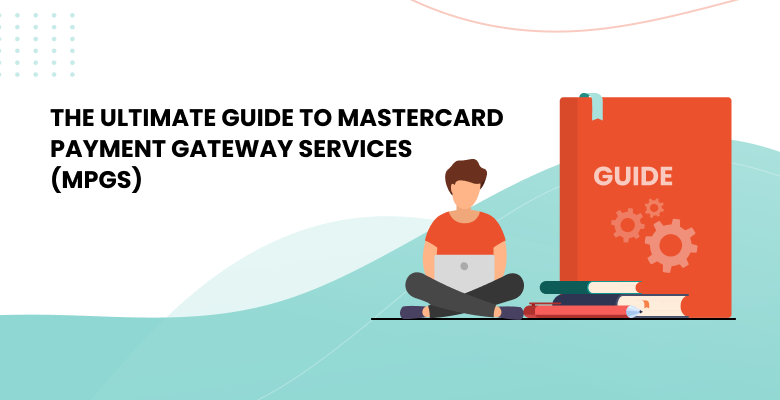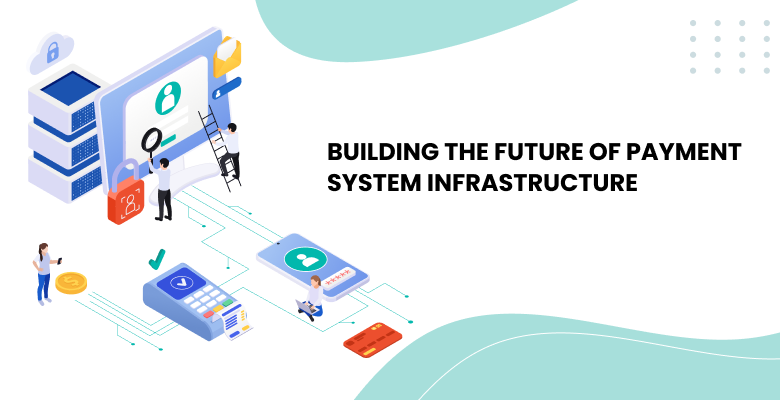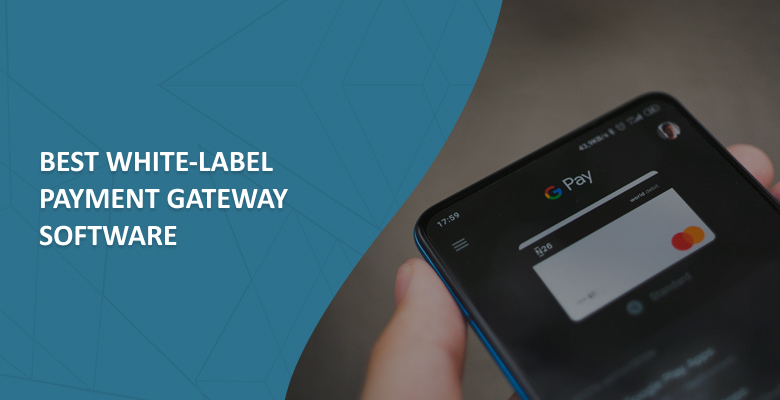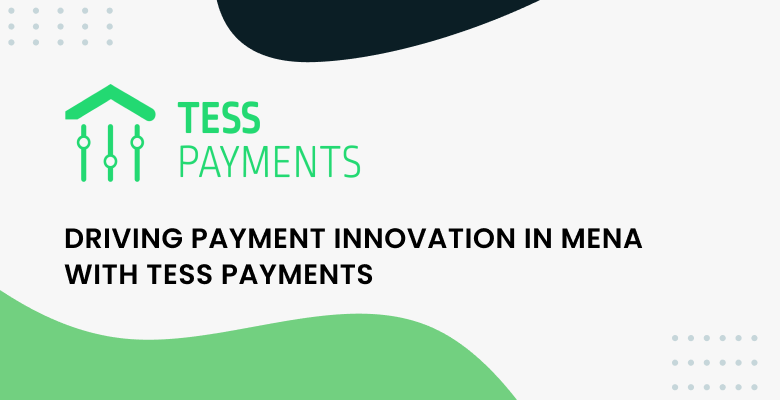
When it comes to online payments, Mastercard Payment Gateway Services (MPGS) stands out as a key player among global payment providers and merchants. This is no coincidence — integrating MPGS unlocks endless possibilities for businesses.
This article delves into what Mastercard Payment Gateway Services is, its key features, the benefits it offers businesses worldwide, and how to integrate MPGS either on your own or via a white-label payment gateway. For a detailed walkthrough, check our MPGS integration guide for step-by-step instructions.
What Is MPGS?
If you’ve ever wondered what MPGS stands for in banking, it refers to Mastercard Payment Gateway Services — a comprehensive payment gateway by Mastercard that empowers businesses to accept and manage digital payments worldwide. Whether operating online, in-store, or via mobile, MPGS provides a competitive edge by ensuring secure, scalable, and efficient payment processing.
MPGS supports nearly 200 acquiring connections globally, offering businesses access to a broad payment ecosystem. By leveraging MPGS, companies gain access to Mastercard’s extensive industry expertise and technological advancements, helping them optimize transaction management, reduce payment friction, and enhance customer satisfaction.
How Mastercard Payment Gateway Services Work
MPGS operates as a global payment processing platform that facilitates secure and efficient transactions for businesses of all sizes, making Mastercard payment gateway integration a smooth and reliable process. Here’s how MPGS works:
Payment authorization
When a customer initiates a transaction, whether online, in-app, or at a physical point of sale, MPGS securely captures payment details. These details include card information, digital wallet credentials, or alternative payment method data.
Data encryption and tokenization
To protect sensitive information, MPGS uses Payment Card Industry Data Security Standards (PCI DSS) compliant security measures, including encryption and tokenization.
Encryption is a technology that transforms sensitive data into ciphertext using an algorithm and a secret encryption key. Payment tokenization is a technology used in transaction processing to enhance the security of sensitive payment information, such as credit card numbers. It replaces them with a random string of characters called tokens that have no intrinsic value. This technology ensures that businesses never store raw cardholder data, reducing fraud risk.
Transaction management
Once the payment data is secured, MPGS routes the transaction to the appropriate acquiring bank or payment processor. With over 200 acquirers globally, it ensures fast and efficient processing based on merchant’s preferences.
Fraud prevention and risk management
MPGS integrates advanced fraud detection tools, such as EMV 3D Secure authentication, real-time transaction monitoring, and AI-driven risk analysis. These features help prevent fraudulent transactions while minimizing false declines, improving the overall customer experience.
Payment settlement and reporting
After successful authorization, the transaction is settled according to the merchant’s agreement with their acquiring bank. MPGS provides businesses with detailed reporting and analytics tools, allowing them to track transaction performance, identify trends, and optimize their payment strategies.
Multi-channel payment support
MPGS enables merchants to accept payments across multiple channels, including:
- E-commerce – Secure online transactions via hosted payment pages or Application Programming Interface (API) integration.
- In-store Point of Sale (POS) – Contactless and chip-based payments via physical terminals.
- Mobile and digital wallets – Seamless integration with Apple Pay, Google Pay, and other alternative payment methods.
With its flexible and scalable infrastructure, MPGS empowers businesses to streamline their payment operations while ensuring a secure, efficient, and user-friendly experience for customers worldwide. For businesses seeking to integrate or even how to make a payment gateway, leveraging robust platforms like MPGS can be a game-changer in ensuring smooth, secure transactions.
Benefits MPGS Brings to the Table
As a leading Mastercard payment gateway service, MPGS delivers flexible and scalable payment solutions tailored to different industries and business sizes. By combining cutting-edge technology with a modular and scalable architecture, MPGS acts as a one-stop shop, enabling merchants to streamline their payment processes and enhance customer experiences.
Here’s a closer look at its key benefits:
Global reach and seamless cross-border transactions
By connecting businesses to over 200 acquiring partners worldwide, MPGS enables merchants to process payments across different countries and currencies. This is particularly valuable for e-commerce businesses and enterprises looking to expand internationally. With built-in multi-currency support, MPGS simplifies global transactions while ensuring compliance with local regulations.
Flexible and modular payment solutions
Every business has unique payment needs, and MPGS provides a modular architecture so that companies can select the features they need. Whether it’s tokenization, recurring billing, or integration with alternative payment methods, MPGS adapts to different business models, from retail and hospitality to Software-as-a-Service (SaaS) platforms and fintechs.
Scalability for growing businesses
MPGS is designed to handle high transaction volumes, making it ideal for growing businesses. Whether a company processes thousands or millions of transactions monthly, MPGS ensures consistent performance, allowing merchants to scale their operations without worrying about payment infrastructure limitations.
Advanced security and fraud prevention
Security is a top priority for businesses handling online payments. MPGS incorporates industry-leading security features, including:
- PCI DSS Compliance
- Tokenization
- EMV 3D Secure Authentication
- AI-Powered Fraud Detection
These features reduce fraud risk while maintaining seamless customer experiences.
White-label customization
For businesses that want to maintain brand consistency, MPGS offers white-label capabilities. This allows companies to present the payment gateway under their brand while reinforcing trust and loyalty among customers.
Future-ready technology
As digital payment trends evolve, MPGS stays ahead by integrating the latest technologies. From supporting emerging payment methods like biometric authentication to enabling IoT-based transactions (such as in-car payments), MPGS helps businesses remain competitive in an increasingly digital economy.
With its secure infrastructure, global reach, and flexible features, MPGS empowers businesses to optimize their payment operations while providing a frictionless customer experience. Whether you’re a startup looking for a reliable payment gateway or an enterprise seeking an advanced, scalable solution, MPGS offers the tools to succeed in today’s fast-paced digital economy.
How to Integrate MPGS: On Your Own vs. Through White-Label Payment Software
Integrating Mastercard Payment Gateway Services can open up numerous payment options for businesses. However, the integration process varies depending on whether you choose direct integration or leverage a white-label payment solution. Below, we outline both approaches, their benefits, and key considerations.
Option one: Direct integration with MPGS
Businesses can integrate MPGS directly into their payment infrastructure, having full control over setup and customization. This approach is ideal for enterprises with in-house development teams and specific payment processing needs.
Obtain MPGS credentials
Register with Mastercard Payment Gateway Services to receive access to MPGS API documentation, merchant credentials, and security keys.
Set up API integration
Use MPGS’s RESTful APIs or Hosted Checkout solutions to connect your platform with the payment gateway. For developers, the Mastercard MPGS documentation provides detailed technical references and integration examples.
Customize transaction flows, including payment authorization, refunds, and chargeback management.
Implement security and compliance measures
Ensure your system meets PCI DSS standards. Integrate tokenization and fraud detection tools such as EMV 3D-Secure for enhanced security.
Test transactions in a sandbox environment
Before going live, conduct end-to-end testing using MPGS’s sandbox to simulate real-world payment scenarios.
Go live and monitor transactions
Deploy the integration and continuously monitor transaction performance using MPGS’s reporting and analytics tools.
Now that you know how to perform a direct integration to MPGS, it’s time to look at the challenges of direct integration:
- Requires technical expertise for API setup, security implementation, and ongoing maintenance.
- Can be time-consuming, depending on business requirements and compliance processes.
- Must handle acquirer relationships and regulatory compliance independently.
Option two: Integrating MPGS via white-label payment software
For businesses looking to streamline integration while maintaining branding control, a white-label payment gateway that supports MPGS can be a strategic alternative. White-label solutions allow businesses to use MPGS’s capabilities under their own brand while benefiting from an already established payment infrastructure.
Here are the advantages of white-label integration:
- Faster deployment – Avoid the complexities of direct API integration by leveraging a pre-built gateway.
- Reduced compliance burden – The white-label provider handles PCI DSS certification and security updates.
- Multi-acquirer support – Gain access to multiple acquiring banks and alternative payment methods (APMs) beyond MPGS.
- Custom branding – Offer a seamless payment experience under your own brand without backend development.
- Advanced features – Benefit from value-added services like automated reconciliation, chargeback management, and AI-driven fraud prevention.
Here’s how to integrate MPGS using a white-label payment gateway:
Choose a white-label provider
Select a provider that offers MPGS integration along with additional features tailored to your business model.
Configure merchant settings
Work with the provider to customize payment flows, including checkout experiences, risk management settings, and payment processing rules.
Enable payment methods and acquirer connections
Set up MPGS along with other supported payment methods (credit cards, digital wallets, APMs, etc.).
Go live
Conduct test transactions to ensure smooth processing, then go live with a fully integrated solution.
Which approach is right for you?
| Factor | Direct MPGS integration | White-label MPGS integration |
| Time to market | Longer setup time | Faster deployment |
| Technical expertise | Requires in-house developers | Minimal technical involvement |
| Compliance & security | Fully managed by business | Handled by the provider |
| Customization | High (but requires effort) | Flexible with pre-built tools |
| Cost efficiency | Higher initial investment | Lower upfront costs |
| Scalability | Requires manual expansion | Easily scalable with the provider’s infrastructure |
Seamless MPGS Integration with Akurateco
For businesses looking to integrate MPGS without the complexity of direct API development, Akurateco offers a seamless solution. As a leading white-label payment software provider, Akurateco has MPGS pre-integrated into our platform, allowing merchants and payment service providers to access MPGS’s powerful capabilities without technical hurdles.
Akurateco not only connects you to MPGS but also supports advanced MPGS features, API versions, operational flow types, and custom parameters, while continually updating the integration.
Akurateco’s MPGS integration includes:
- Support for multiple MPGS API versions to ensure compatibility with evolving Mastercard documentation.
- Full card-processing flow coverage – SMS, DMS, and Recurring for cards, plus Apple Pay and Google Pay, including Routing, Cascading, and DMS flows for wallet transactions.
- Complete 3DS support – All 3DS flows and versions, including 3DS 1, 3DS 2.1/2.2, and Frictionless.
- Continuously updated integration – Always aligned with MPGS’s latest requirements, bank specifications, and technical revisions.
- Flexible configuration of non-mandatory parameters to fine-tune optional and custom MPGS fields for different terminals, business models, or acquirer requirements.
As a result, by connecting to MPGS via Akurateco — a powerful Mastercard online payment gateway — businesses benefit from:
Quick and hassle-free integration
Save time and resources with Akurateco’s pre-built connection to MPGS.
All-in-one payment solution
Access MPGS alongside 600+ other global and local payment methods.
Payment team as a service
Leverage Akurateco’s experience and guidance for a smooth onboarding process.
Enhanced customization
Adapt the MPGS solution to your business needs with Akurateco’s flexible payment infrastructure.






